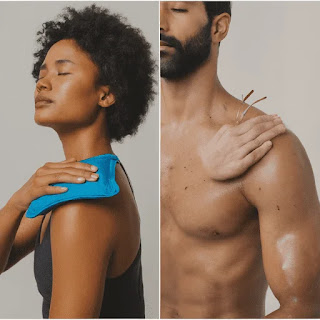Introduction
A rotator cuff tear can be a painful and limiting condition, impacting one's daily life and range of motion. While medical intervention may be necessary in severe cases, there are natural approaches that can aid in the healing process and alleviate symptoms. In this article, we will explore various strategies encompassing lifestyle changes, exercises, and alternative therapies that may contribute to the natural healing of a rotator cuff tear.
Understanding Rotator Cuff Tears
The rotator cuff is a group of muscles and tendons surrounding the shoulder joint, providing stability and facilitating a wide range of motion. Tears in the rotator cuff can occur due to various reasons, including aging, overuse, traumatic injury, or a combination of these factors. Before delving into natural healing methods, it's essential to understand the different types of tears and their severity, as this can influence the approach to treatment.
Rest and Lifestyle Modifications
One of the first steps in healing a rotator cuff tear naturally involves giving the affected shoulder adequate rest. Avoiding activities that exacerbate pain and cause further strain on the shoulder is crucial. Simple lifestyle modifications, such as adjusting sleeping positions and using supportive pillows, can contribute to minimizing stress on the shoulder during the healing process.
Anti-Inflammatory Diet
Inflammation plays a significant role in the pain and progression of rotator cuff tears. Adopting an anti-inflammatory diet can aid in reducing inflammation and supporting the body's natural healing mechanisms. Foods rich in omega-3 fatty acids, such as fatty fish (salmon, mackerel), flaxseeds, and walnuts, have anti-inflammatory properties. Incorporating a variety of colorful fruits and vegetables with antioxidants can also promote healing.
Nutritional Supplements
Certain nutritional supplements may assist in the natural healing of a rotator cuff tear. Collagen supplements, in particular, can support the structure of tendons and ligaments. Vitamin C is essential for collagen synthesis, while vitamin D is crucial for bone health. Glucosamine and chondroitin supplements may contribute to joint health and reduce pain associated with the tear.
Physical Therapy and Exercise
Engaging in targeted exercises under the guidance of a physical therapist can strengthen the muscles surrounding the shoulder and improve overall shoulder stability. These exercises may include gentle stretches, range of motion exercises, and resistance training. Gradual progression is key, and it's important not to overexert or exacerbate the injury during the rehabilitation process.
Hot and Cold Therapy
Applying heat or cold to the affected shoulder can help alleviate pain and reduce inflammation. Cold packs can be applied during the acute phase to numb the area and decrease swelling, while heat packs may be beneficial during the later stages to improve blood flow and promote healing.
Mind-Body Techniques
Stress can exacerbate pain and hinder the healing process. Mind-body techniques such as yoga, meditation, and deep breathing exercises can help manage stress and improve overall well-being. These practices may also enhance body awareness, facilitating a mindful approach to movement and preventing further injury.
Alternative Therapies
Several alternative therapies may complement conventional approaches to healing rotator cuff tears. Acupuncture, for example, has been reported to reduce pain and improve function in individuals with shoulder injuries. Massage therapy can help relax tight muscles and promote blood circulation, contributing to the healing process.
Conclusion
Healing a rotator cuff tear naturally involves a multifaceted approach that addresses various aspects of physical and mental well-being. While these natural strategies can be beneficial, it's essential to consult with a healthcare professional for a comprehensive assessment and personalized guidance.
In some cases, medical interventions such as corticosteroid injections or surgery may be necessary. By combining lifestyle modifications, nutritional support, physical therapy, and alternative therapies, individuals can optimize their chances of recovering from a rotator cuff tear and regaining full shoulder function.




No comments:
Post a Comment